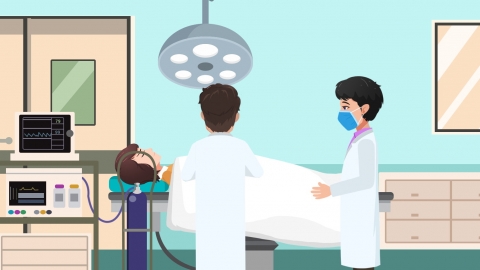How should recurrent symptoms be treated after radiotherapy?
Recurrence symptoms after radiotherapy should be managed through interventions such as re-irradiation, surgical resection, chemotherapy, targeted therapy, or immunotherapy. The treatment plan must be individualized based on the site of recurrence, tumor size, and the patient's overall health condition to control disease progression. If existing symptoms worsen, new lesions appear, or any physical discomfort occurs, prompt medical consultation is recommended.
1. Re-irradiation: For cases with limited recurrence not involving critical organs, precise radiotherapy techniques may be used to control tumor growth while minimizing damage to surrounding healthy tissues. Patient tolerance must be carefully evaluated before treatment.
2. Surgical Resection: When recurrent tumors are localized without widespread metastasis and the patient’s physical condition permits, complete surgical removal of the lesion is an option. Additional therapies after surgery can help reduce the risk of further recurrence and improve prognosis.

3. Chemotherapy Intervention: For extensive recurrence or cases with metastasis, chemotherapy drugs are used to inhibit tumor cell proliferation and alleviate symptoms. Appropriate agents should be selected according to tumor type, with close monitoring for adverse drug reactions.
4. Targeted Therapy: If specific molecular targets are identified in the tumor, targeted drugs can precisely act on cancer cells by blocking their growth signaling pathways. This approach offers high specificity and relatively less damage to normal tissues, but target testing must be performed first.
5. Immunotherapy: This treatment uses medications to activate the body's immune system, enhancing the recognition and destruction of tumor cells by immune cells. It is suitable for certain patients with advanced recurrence and can improve quality of life and prolong survival.
In daily life, maintaining regular作息 (sleep-wake cycles), avoiding excessive fatigue, following a balanced diet to ensure adequate nutrition, engaging in moderate gentle exercises to strengthen physical condition, and maintaining a positive mindset are important to minimize the negative impact of emotional stress on recovery.









